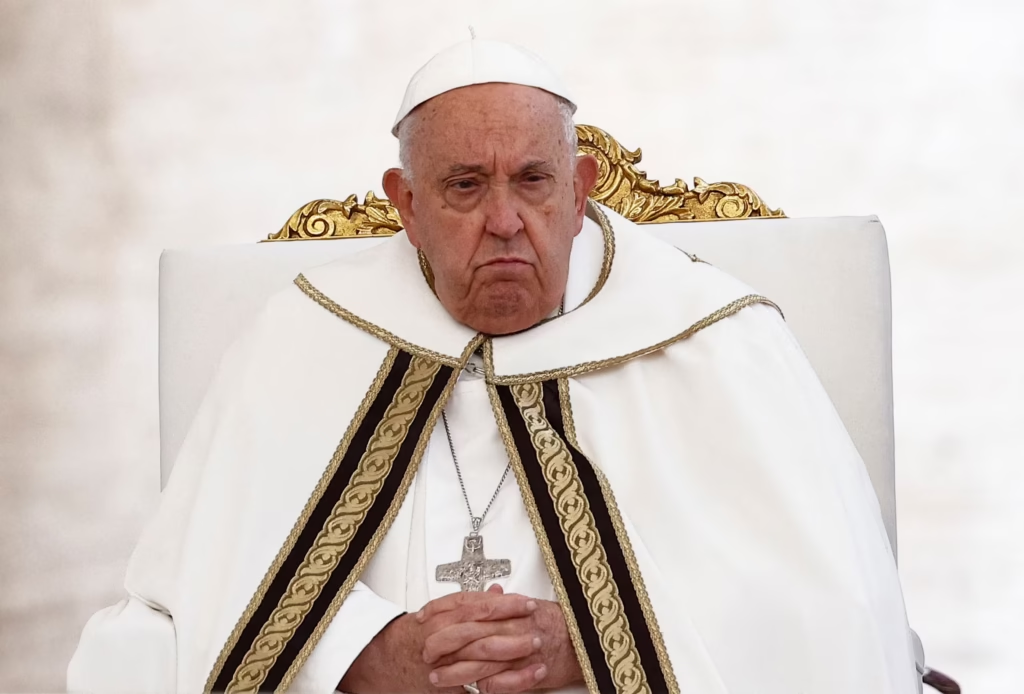Pope Francis, the 266th Pope of the Roman Catholic Church, has been a global spiritual leader since his election in March 2013. Known for his humility, progressive views, and dedication to social justice, Pope Francis has captured the hearts of millions worldwide. However, in recent years, concerns about his health have grown, prompting questions about his ability to lead the Church and the future of the papacy. This comprehensive guide explores Pope Francis’s health situation, including his medical history, recent health challenges, and the implications for the Catholic Church.
Who is Pope Francis?
Before diving into his health, it’s essential to understand who Pope Francis is and why his leadership is so significant. Born Jorge Mario Bergoglio on December 17, 1936, in Buenos Aires, Argentina, he became the first Jesuit pope and the first from the Americas. His papacy has been marked by efforts to reform the Church, promote interfaith dialogue, and address global issues like climate change and poverty.
Pope Francis’s Medical History
Pope Francis has faced several health challenges throughout his life, even before becoming pope. Here’s a timeline of his medical history:
Early Health Struggles
- Lung Removal (1950s): As a teenager, Francis had part of his lung removed due to a severe infection. This has occasionally affected his breathing and stamina.
- Sciatica: He has long suffered from sciatica, a condition causing pain along the sciatic nerve, which affects his mobility.
Health Issues as Pope
- Eye Problems: In 2019, Pope Francis underwent cataract surgery to address vision issues.
- Colon Surgery (2021): In July 2021, he underwent surgery for diverticulitis, a condition affecting the colon. The surgery required a 10-day hospital stay.
- Knee Pain and Mobility Issues: In recent years, the Pope has been seen using a wheelchair or cane due to chronic knee pain, which has limited his public appearances.
Recent Health Concerns
In 2023, Pope Francis’s health has been a topic of increased scrutiny. Here are the key developments:
Hospitalizations in 2023
- March 2023: Pope Francis was hospitalized for a respiratory infection. Although the Vatican described it as a routine check-up, it raised concerns about his overall health.
- June 2023: He underwent abdominal surgery to address a hernia related to his 2021 colon surgery. The procedure was successful, but it highlighted his ongoing health struggles.
Public Appearances and Mobility
Pope Francis has increasingly relied on a wheelchair or cane during public events. His limited mobility has led to speculation about his ability to fulfill the demanding duties of the papacy.
Statements from the Vatican
The Vatican has consistently downplayed concerns about the Pope’s health, emphasizing that he remains active and engaged in his duties. However, his reduced schedule and frequent medical interventions suggest otherwise.
What Are the Implications for the Catholic Church?
Pope Francis’s health situation has significant implications for the Catholic Church, including:
Succession Planning
- Papal Resignation: Pope Francis has not ruled out the possibility of resigning, following the precedent set by Pope Benedict XVI in 2013. If his health deteriorates further, this could become a reality.
- Next Pope: The College of Cardinals would convene to elect a new pope. Speculation about potential successors has already begun, with names like Cardinal Pietro Parolin and Cardinal Luis Antonio Tagle frequently mentioned.
Church Leadership and Reforms
Pope Francis has been a driving force behind progressive reforms within the Church. His potential departure could slow or reverse these efforts, depending on who succeeds him.
Global Influence
As a globally respected figure, Pope Francis’s absence could leave a void in interfaith dialogue and global advocacy for issues like climate change and social justice.
How Has Pope Francis Responded to Health Concerns?
Despite his health challenges, Pope Francis has maintained a positive outlook and continued his work. He has often joked about his age and limitations, saying, “I’m still alive!” during public appearances. His resilience and dedication to his role have inspired millions.
What’s Next for Pope Francis?
While the Pope’s health remains a concern, he continues to lead the Church with determination. Key areas to watch include:
- Upcoming Travel Plans: Pope Francis has several international trips planned, including visits to Africa and Asia. These will be a test of his stamina.
- Vatican Events: Major events like the Synod on Synodality in 2023 and 2024 will require his active participation.
- Health Updates: The Vatican will likely continue to provide updates on his condition, though these may be carefully worded to avoid alarm.
Frequently Asked Questions About Pope Francis’s Health
1. Is Pope Francis resigning?
As of now, there is no official announcement about his resignation. However, he has not ruled out the possibility if his health worsens.
2. What is diverticulitis?
Diverticulitis is a condition where small pouches in the colon become inflamed or infected. It can cause severe pain and requires medical intervention.
3. How old is Pope Francis?
As of 2023, Pope Francis is 86 years old.
4. Who will succeed Pope Francis?
The next pope will be elected by the College of Cardinals. While it’s impossible to predict who it will be, several cardinals are considered front-runners.
Call to Action
Stay informed about Pope Francis’s health and the latest developments in the Catholic Church by following trusted news sources like Vatican News and BBC Religion. Share your thoughts and prayers for Pope Francis in the comments below, and join the conversation on social media using #PrayForPopeFrancis and #CatholicChurch.



